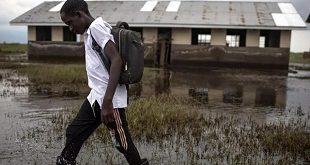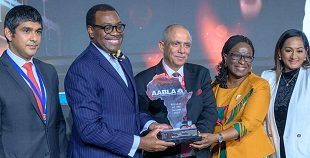
By Mubatsi Asinja Habati
In the last three weeks, Uganda has witnessed the police and the military battling the protesters under the ‘walk to work’ campaign. Civil society organisations like Uganda NGO Forum, Transparency International Uganda, Human Rights Network and International HIV/AIDS Alliance Uganda have condemned the brutality of the security forces against the civilian protesters. The Independent’s Mubatsi Asinja Habati spoke to Arthur Larok, Director of Programmes at the Uganda NGO Forum about the matter.
Why are you showing solidarity with Activists for Change?
The issues raised by the activists for change are legitimate concerns. Nobody needs to be persuaded about the issues of high fuel and food prices because they affect us all. We should not fall in the trap that this is an opposition agenda. If that’s what opposition means, then that’s good, let’s us proceed with it because they are identifying with the genuine concerns that Ugandans have. During the Return- Our-Money campaign we called on politicians to join us and some joined us. They have provided the leadership and we should not ignore them just because the politicians have raised these issues.
So is it payback time?
Not necessarily payback time. Each stakeholder provides leadership for different aspects. The Activists for Change have provided leadership on this matter. In Kenya it is the civil society doing it and probably they have moved faster than us. So we must appreciate that over and above where the politicians sit, they are ordinary Ugandans and citizens and we must show them solidarity.

Aren’t you risking being dismissed as political or opposition sympathisers?
That’s not a problem. The opposition have been demonised in this country, which is wrong and we must challenge it. If it is going to take me identity of an opposition for me to express what I genuinely feel and believe in, so be it. If we take that thinking every Ugandan will soon be opposition and then I don’t know what government will say.
How should the government treat the opposition?
The government should look at the opposition more positively. These are citizens of this country. Dr Kizza Besigye whom they are throwing over the police pick-ups had over two million Ugandans stating that he can be president. He commands a following in the country. Respect his rights as an individual. If Besigye or Mao was in power and was doing this to Museveni, I would come out and say treat him with respect. We should stand on a principle of respecting human rights and dignity.
The issue by the Activists for Change has been prices of commodities which concern everyone. But government says there is a hidden political agenda.
The government has always said that whenever a matter of public interest arises. That is part of the argument we have that the government shies away from responsibility and gets diversionary. What is opposition about the high prices? You find contractions in the government reaction. At one point they say it’s an opposition issue, later they say the prices are a global issue and now they say they will form committees to look into the possibility of reducing tax on fuel. This is the time, when you have the mandate of the people, to provide decisive leadership needed for change and to effectively respond to crisis regardless of who raises the issue. The media raised the issue of jiggers in Busoga, you don’t go knocking heads at media houses accusing them of reminding the public that jiggers are killing people here. The problem of prices is not a problem of last week, it is an issue of systemic failure on the part of government to build fuel reserves, allocating little funding to agriculture, and closing of the cooperative societies.
What should government do?
The walk-to-work campaign is a pointer to the bigger problems we have in the country. We are calling upon government to create space in which alternative views from people in the political, social, civil society and religious sectors can be heard and debated. We are demanding an inclusive dialogue to address all these long term grievances. This will give the dialogue a national outlook. Government should acknowledge that there is a problem and act fast. Government should invest more in irrigation, fuel reserves and in its people.
You say the civil society should be included in this dialogue. What would you like to see being discussed?
Uganda has political, social and economic problems. Much as there is immediate need for the President to meet the politicians, this dialogue should not be left to politicians alone. There are practical things that should be brought to the table in such a dialogue. True the main issue at hand is high commodity prices and other governments have offered subsidies to farmers. Kenya has already announced cuts on fuel taxes. We would like to see the same happening in Uganda. In the medium and long term, the government must be inclusive in the way it handles crises.
There is the interparty organisation for dialogue forum where such issues can be handled, must the civil society be involved?
This was formed by and for politicians. Its core concerns have been Electoral Commission, democracy, etc. Here we are talking about national issues and civil society has participated extensively in policy debates including contribution to the National Development Plan. We can’t bury our heads in the sand when important national issues come up.
What do you make of the police handling of the walk-to-work protests?
The police have mostly acted unprofessional. Its leadership is militarised. We have seen cases where demonstrators have asked the police what wrongs they have done, then police consult “powers from above” before they respond. When you see the police shooting children and innocent people like the case in Masaka, is that being professional? The police should not be the source of violence or appear to condone it.
 The Independent Uganda: You get the Truth we Pay the Price
The Independent Uganda: You get the Truth we Pay the Price


